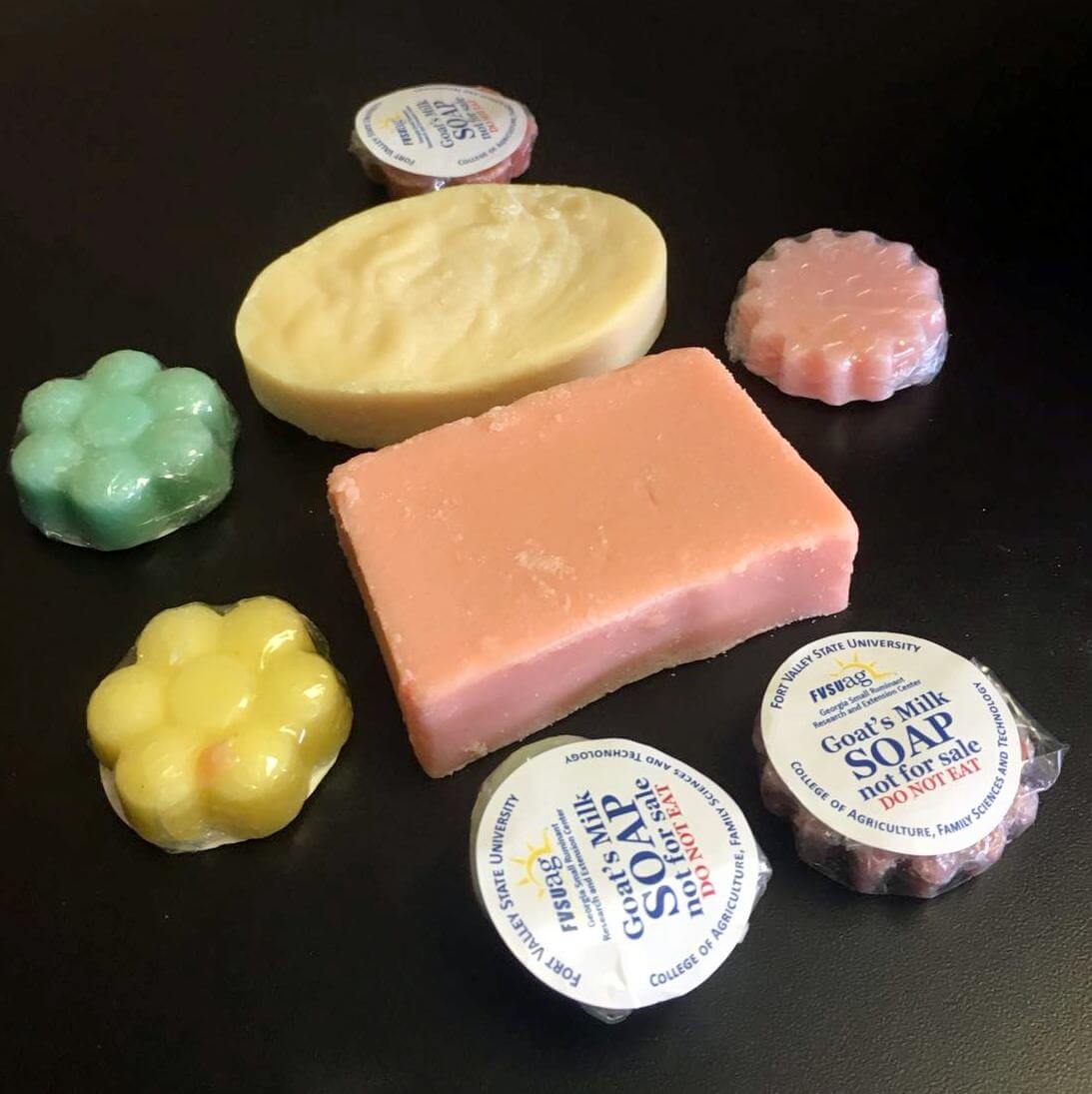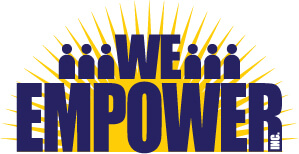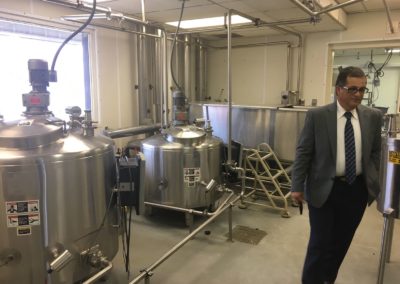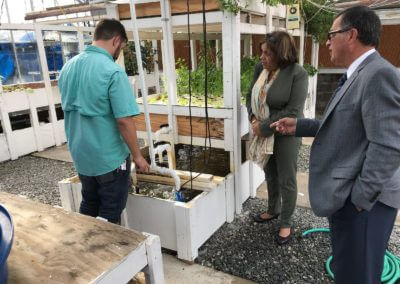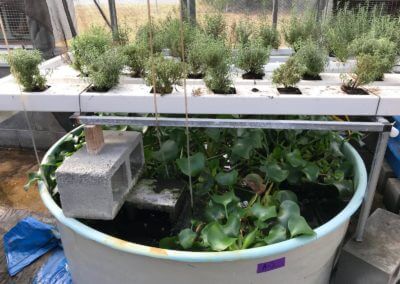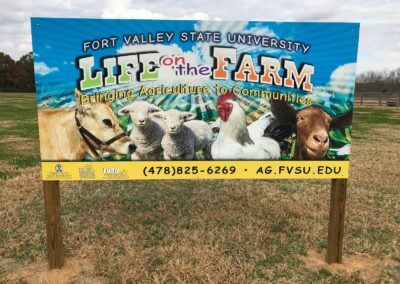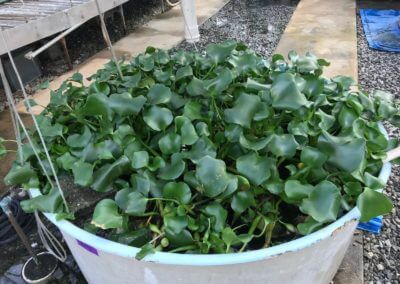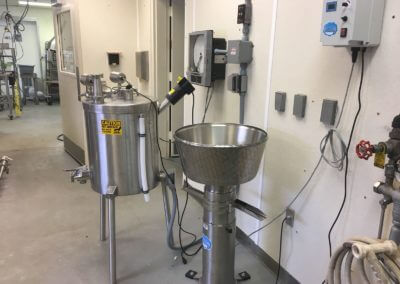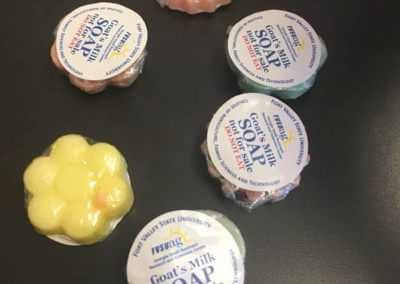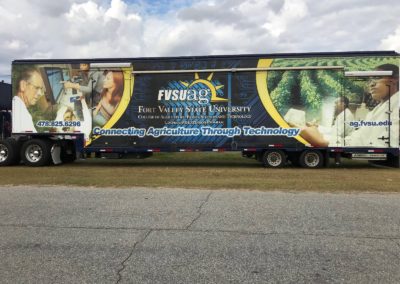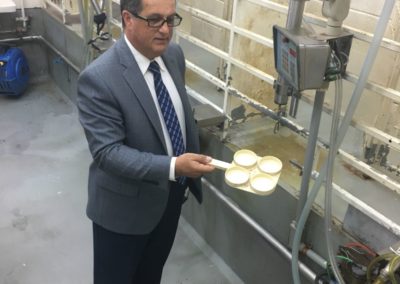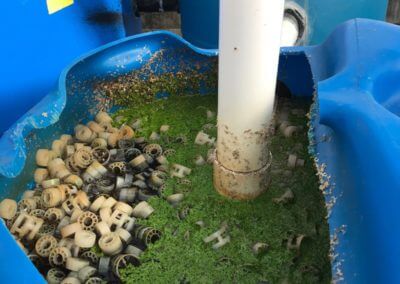We-Empower visits Fort Valley State University
November 2017 – FVSU, Georgia.
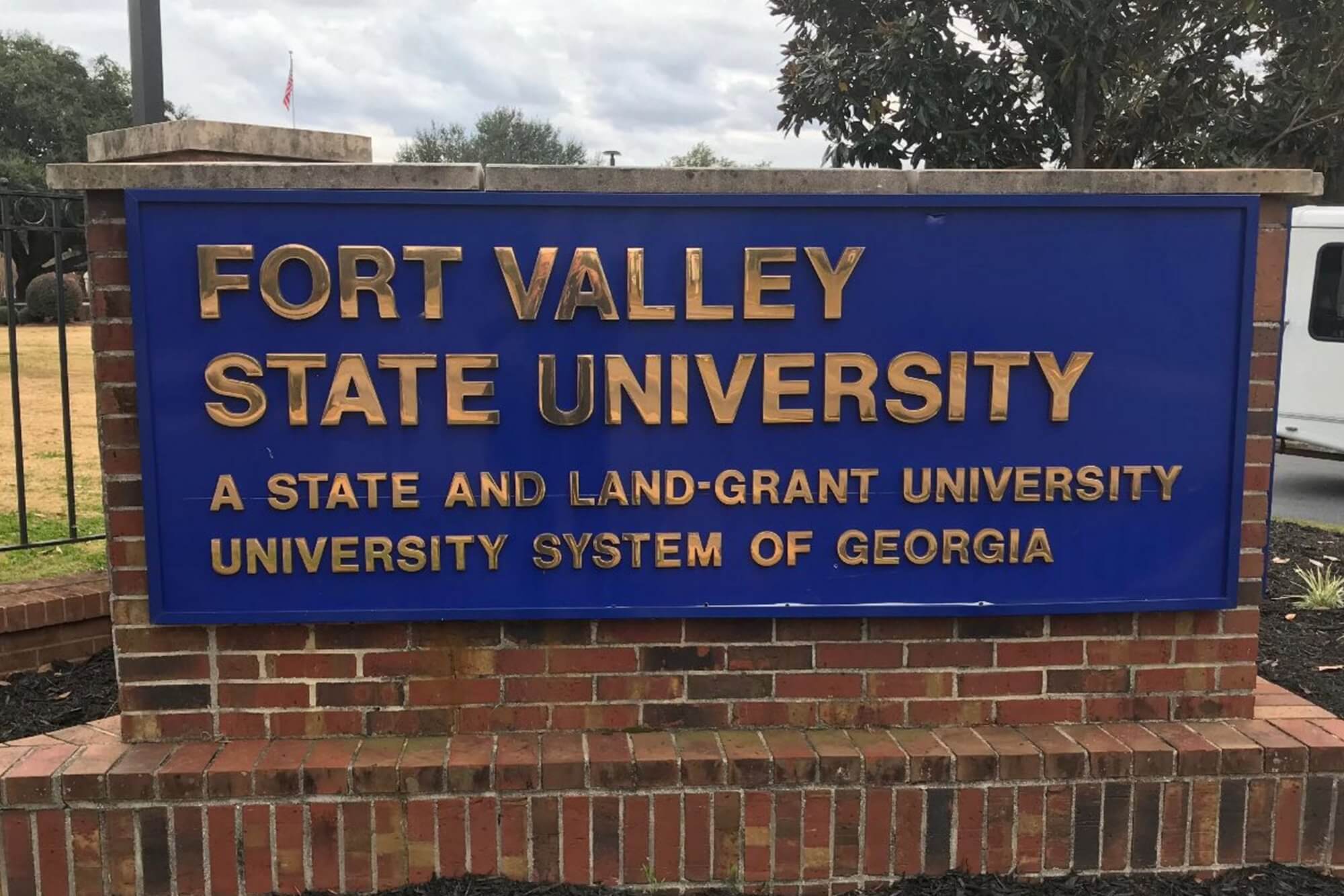
Noubia Gribi-Hussain, We-Empower President and CEO, and Mushtaq Memon, Vice President Livestock visited Fort Valley State University (FVSU) to discuss potential collaboration opportunities of common interest and benefit.
FVSU established in 1895 is a land-grant institution, and is one of the Historical Black Colleges and Universities. FVSU distinguishes itself as one of the top producer of African Americans graduating in mathematics, agriculture and engineering fields.
Numerous FVSU faculties have been involved in International Development. FVSU has unique programs in sheep and goat production, goat dairy, milk and meat processing facilities (goat and sheep cheeses, meat Jerky).
Other expertise includes Hydroponics, Aquaponics, Gender programs, and 4H program.
The outcome of the visit was a signed Letter of Interest for future collaboration between We-Empower and FVSU.
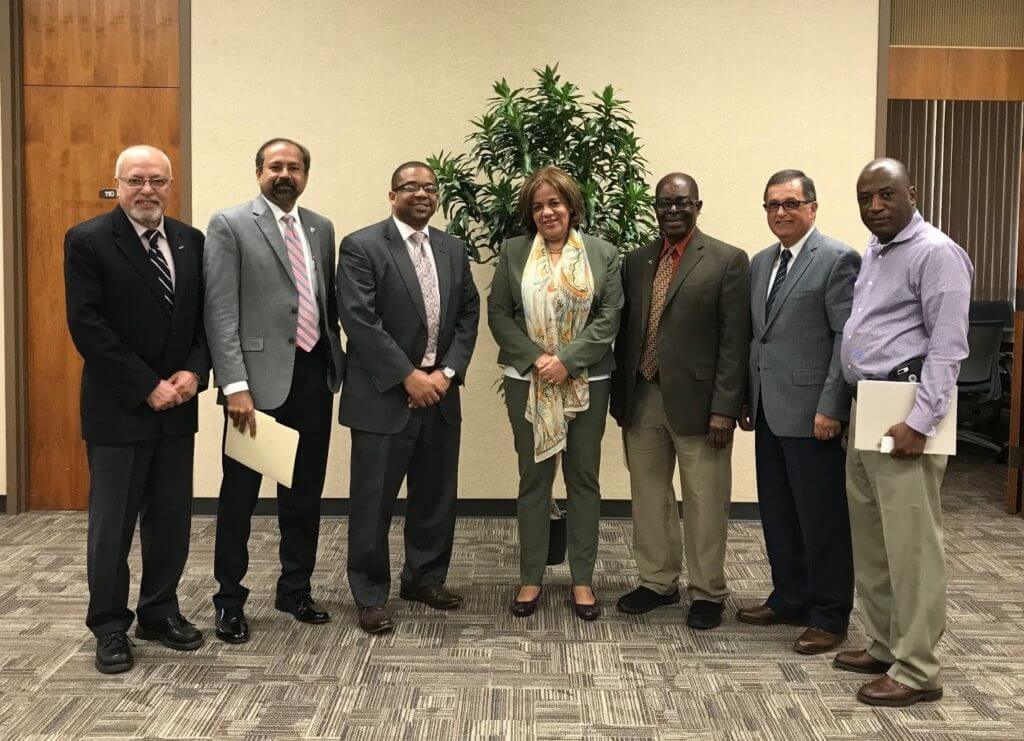
From L to R: M Memon, VP W-E; G Kannan; Dean and Director, College of Agriculture, Family Sciences and Technology; T Stuart, Provost and Vice President Academic Affairs; N Gribi-Hussain, President and CEO, W-E; S Gyapong, Prof Marketing and Business Logistics; S Mobini, Prof Veterinary Sciences; B Kouakou, Director, Georgia Small Ruminant Research & Extension Center.
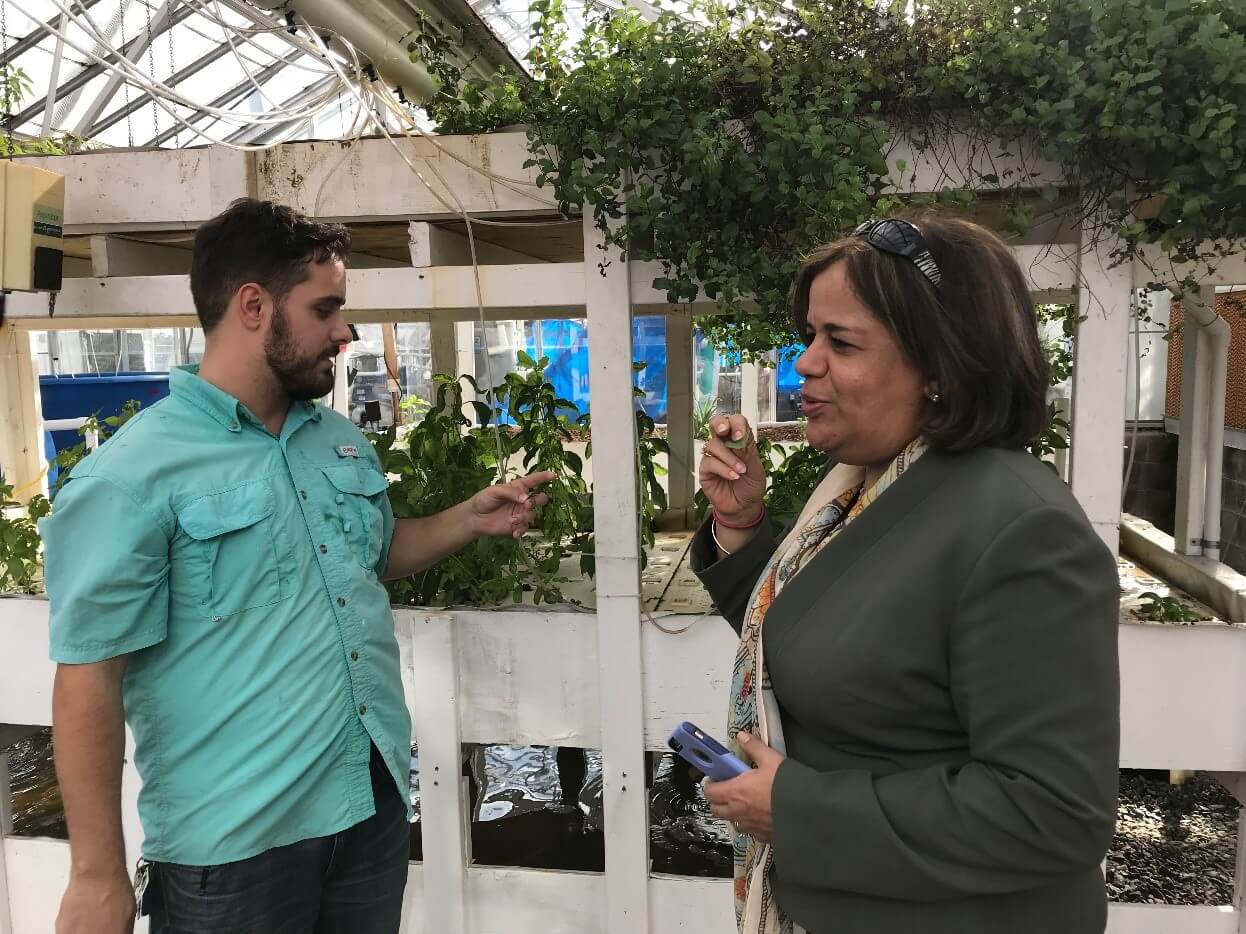 Ms. Noubia Gribi-Hussain, President/CEO, W-E discusses with FVSU graduate student working on the green house projects, including hydroponics, and aquaponics. When asked, the graduate showed his willingness to help install these systems in the field and train farmers accordingly. Hydroponics attracts youth (men and women) and brings them back to the agriculture field.
Ms. Noubia Gribi-Hussain, President/CEO, W-E discusses with FVSU graduate student working on the green house projects, including hydroponics, and aquaponics. When asked, the graduate showed his willingness to help install these systems in the field and train farmers accordingly. Hydroponics attracts youth (men and women) and brings them back to the agriculture field.
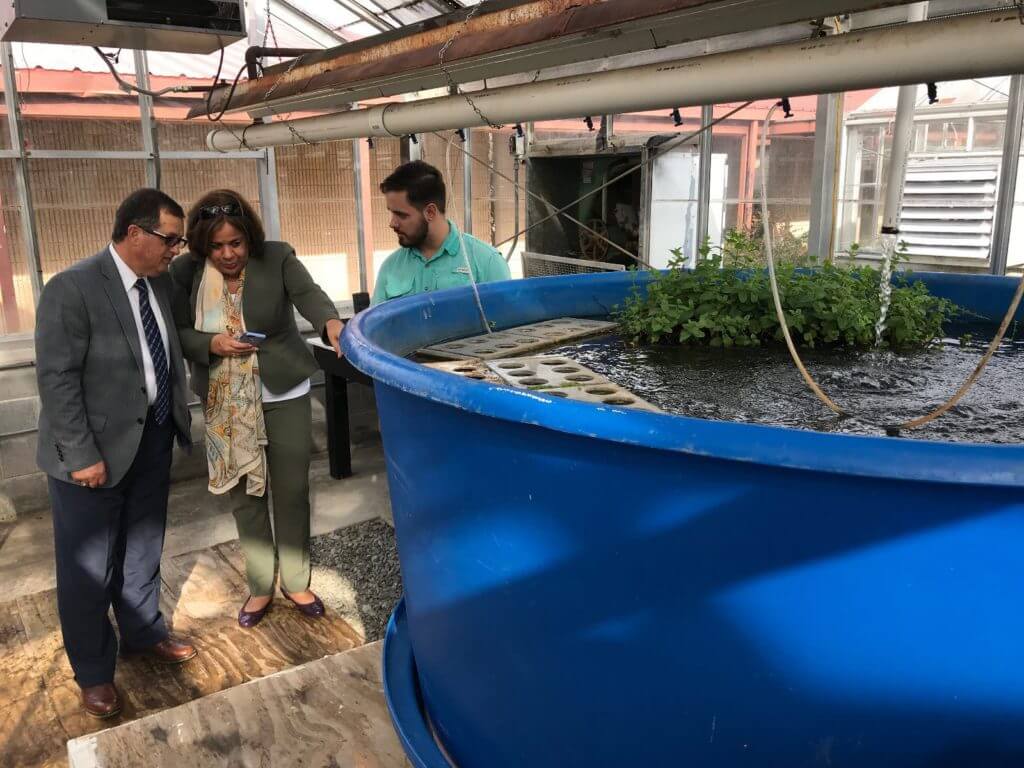 Ms. Gribi-Hussain along with Prof Mobini discussing the concepts of hydroponics, aquaponics, and potential collaboration in the field for food security which is the main mission of We-Empower.
Ms. Gribi-Hussain along with Prof Mobini discussing the concepts of hydroponics, aquaponics, and potential collaboration in the field for food security which is the main mission of We-Empower.
There are several benefits of such technology to farmers. At the top of the list is water efficiency. Hydroponic systems use significantly less water than soil based farming and allow you to recycle the water you give to your plants. Instead of having it drain down through the soil and away from the roots of a plant, it’s collected and pumped right back to the plants.
This cycle of irrigation, collection, and irrigation again continues until the plants have consumed the water. Other benefits are: no weeds, thus no need of herbicides, quick turnover: there are no seasonal limits or restoration periods required for the farm.
Once a plant is harvested, the next can be planted in its place, precise control over the nutrients your plants need to thrive, Freedom to grow just about anywhere. Commercial hydroponics doesn’t have the limitations of being held to rural agricultural land. Being able to grow closer to the people eating your crops increases accessibility and eliminates the need for complex distribution networks that take away profits from the farmer.
Aquaponics is the combination of recirculation aquaculture and hydroponics. In aquaponics, you grow plants and fish together in one integrated system.
The fish waste provides a food source for the growing plants and the plants provide a natural filter for the water the fish live in.
This creates a sustainable ecosystem where both plants and fish can thrive. Aquaponics is a completely natural process which mimics all lakes, ponds, rivers and waterways on earth.
The only input to an aquaponics system is fish food. The fish eat the food and excrete waste, which is converted (by beneficial bacteria) to a form that plants can use. In consuming these nutrients, the plants help to purify the water. You can’t use herbicides, pesticides or other harsh chemicals in an aquaponics system, making the fish and plants healthful and safe to eat. Fish grown in aquaponics are: Tilapia, crappie, brim, bass, carp, goldfish and koi.
Small Ruminants (sheep and goats): FVSU has unique capabilities and experiences in small ruminants. In many developing countries, small ruminants are a large part of animal-agriculture. For example, in Mali, 85% of agriculture households own some form of ruminant which includes cattle, sheep, goats and camel. It is estimated that Mali has about 31 million sheep and goats. Two important factors play part in poor production of small ruminants in developing countries – poor nutrition and lack of parasite control.
FVSU has expertise in animal feeding and ration development with by-products available in targeted countries, a sustainable option for small ruminant feeding. FVSU as the lead an active participant in American Consortium for small ruminant parasite control which- implements sustainable parasite control management, surveillance and education using technologies developed in the US and other countries.
Product development and processing for marketing are essential parts of sheep and goat value chain, which includes milk, meat, milk products (cheese, yogurt, etc.) and soap. In fact, women and youths are actively involved in small ruminant management and the value chain. Hands-on training for women and youth will be an essential part of our development projects related to small ruminants in developing countries.
Noubia Gribi-Hussain, We-Empower President and CEO, and Mushtaq Memon, Vice President Livestock visited Fort Valley State University (FVSU) to discuss potential collaboration opportunities of common interest and benefit.
FVSU established in 1895 is a land-grant institution, and is one of the Historical Black Colleges and Universities. FVSU distinguishes itself as one of the top producer of African Americans graduating in mathematics, agriculture and engineering fields.
Numerous FVSU faculties have been involved in International Development. FVSU has unique programs in sheep and goat production, goat dairy, milk and meat processing facilities (goat and sheep cheeses, meat Jerky).
Other expertise includes Hydroponics, Aquaponics, Gender programs, and 4H program.
The outcome of the visit was a signed Letter of Interest for future collaboration between We-Empower and FVSU.

From L to R: M Memon, VP W-E; G Kannan; Dean and Director, College of Agriculture, Family Sciences and Technology; T Stuart, Provost and Vice President Academic Affairs; N Gribi-Hussain, President and CEO, W-E; S Gyapong, Prof Marketing and Business Logistics; S Mobini, Prof Veterinary Sciences; B Kouakou, Director, Georgia Small Ruminant Research & Extension Center.
 Ms. Noubia Gribi-Hussain, President/CEO, W-E discusses with FVSU graduate student working on the green house projects, including hydroponics, and aquaponics. When asked, the graduate showed his willingness to help install these systems in the field and train farmers accordingly. Hydroponics attracts youth (men and women) and brings them back to the agriculture field.
Ms. Noubia Gribi-Hussain, President/CEO, W-E discusses with FVSU graduate student working on the green house projects, including hydroponics, and aquaponics. When asked, the graduate showed his willingness to help install these systems in the field and train farmers accordingly. Hydroponics attracts youth (men and women) and brings them back to the agriculture field.
 Ms. Gribi-Hussain along with Prof Mobini discussing the concepts of hydroponics, aquaponics, and potential collaboration in the field for food security which is the main mission of We-Empower.
Ms. Gribi-Hussain along with Prof Mobini discussing the concepts of hydroponics, aquaponics, and potential collaboration in the field for food security which is the main mission of We-Empower.
There are several benefits of such technology to farmers. At the top of the list is water efficiency. Hydroponic systems use significantly less water than soil based farming and allow you to recycle the water you give to your plants. Instead of having it drain down through the soil and away from the roots of a plant, it’s collected and pumped right back to the plants.
This cycle of irrigation, collection, and irrigation again continues until the plants have consumed the water. Other benefits are: no weeds, thus no need of herbicides, quick turnover: there are no seasonal limits or restoration periods required for the farm.
Once a plant is harvested, the next can be planted in its place, precise control over the nutrients your plants need to thrive, Freedom to grow just about anywhere. Commercial hydroponics doesn’t have the limitations of being held to rural agricultural land. Being able to grow closer to the people eating your crops increases accessibility and eliminates the need for complex distribution networks that take away profits from the farmer.
Aquaponics is the combination of recirculation aquaculture and hydroponics. In aquaponics, you grow plants and fish together in one integrated system.
The fish waste provides a food source for the growing plants and the plants provide a natural filter for the water the fish live in.
This creates a sustainable ecosystem where both plants and fish can thrive. Aquaponics is a completely natural process which mimics all lakes, ponds, rivers and waterways on earth.
The only input to an aquaponics system is fish food. The fish eat the food and excrete waste, which is converted (by beneficial bacteria) to a form that plants can use. In consuming these nutrients, the plants help to purify the water. You can’t use herbicides, pesticides or other harsh chemicals in an aquaponics system, making the fish and plants healthful and safe to eat. Fish grown in aquaponics are: Tilapia, crappie, brim, bass, carp, goldfish and koi.
Small Ruminants (sheep and goats): FVSU has unique capabilities and experiences in small ruminants. In many developing countries, small ruminants are a large part of animal-agriculture. For example, in Mali, 85% of agriculture households own some form of ruminant which includes cattle, sheep, goats and camel. It is estimated that Mali has about 31 million sheep and goats. Two important factors play part in poor production of small ruminants in developing countries – poor nutrition and lack of parasite control.
FVSU has expertise in animal feeding and ration development with by-products available in targeted countries, a sustainable option for small ruminant feeding. FVSU as the lead an active participant in American Consortium for small ruminant parasite control which- implements sustainable parasite control management, surveillance and education using technologies developed in the US and other countries.
Product development and processing for marketing are essential parts of sheep and goat value chain, which includes milk, meat, milk products (cheese, yogurt, etc.) and soap. In fact, women and youths are actively involved in small ruminant management and the value chain. Hands-on training for women and youth will be an essential part of our development projects related to small ruminants in developing countries.
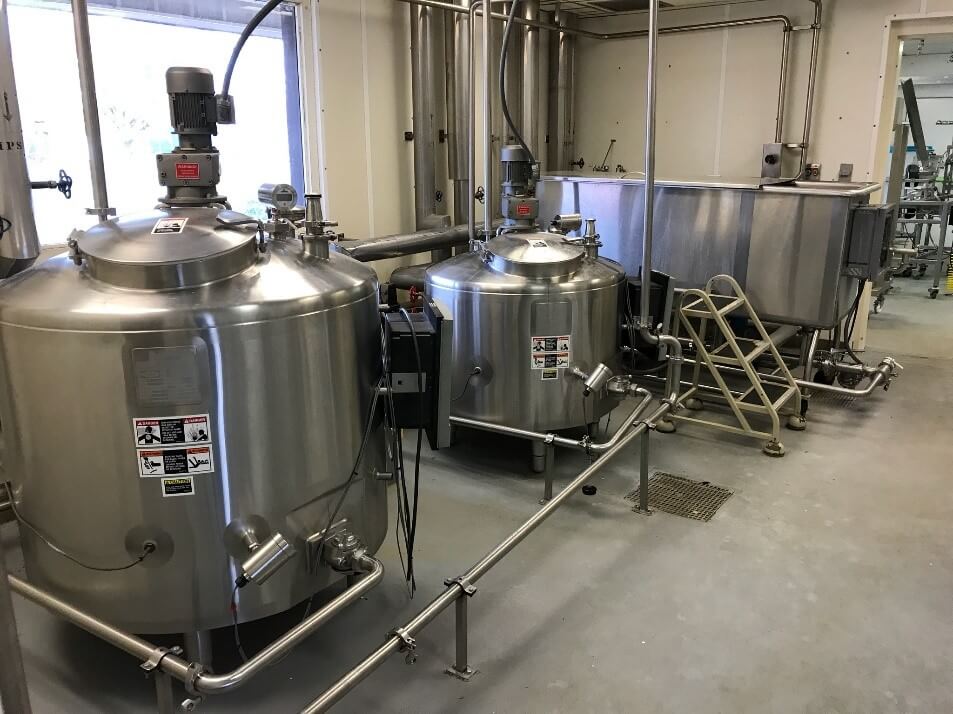
Fort Valley State University’s (FVSU) unique dairy goat milk processing facility. Milking machine are utilized to milk goats. The milk is transported from milking machines to bulk milk tanks via enclosed pipe system to be pasteurized. The automation system of milk collection and processing system is state-of-the-art milk technology at the FVSU
Goat and Sheep value added products include: cheese making, soap made from goat milk, and other milk by-products that can be attractive option for providing business opportunities for women and youth in developing economies
